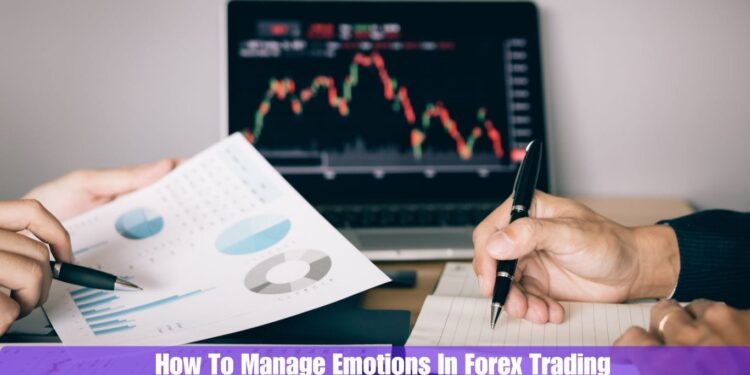Forex trading is notorious for evoking intense emotions. Many traders grapple with maintaining their composure when market prices fluctuate. The ability to manage these emotions is crucial for achieving success in the forex world. Emotions such as stress, fear, and greed often lead to poor decision-making.
This guide provides practical advice for navigating these emotional waters. It includes straightforward tips for staying level-headed when the pressure mounts, helping you trade with a focused and clear mind.
Key Takeaways
- Emotions like fear, greed, and impatience can result in detrimental trading decisions.
- Utilizing tools like stop-loss and take-profit orders helps mitigate emotional influences on trading.
- Maintaining a trading journal aids in tracking results and identifying behavioral patterns.
- Mindfulness techniques, such as deep breathing, enhance concentration and decision-making.
- Adhering to a robust trading psychology plan averts impulsive decisions influenced by emotions.
How To Manage Your Emotions In Forex Trading
Forex trading naturally stirs up intense emotions. It’s essential for traders to learn how to manage these feelings to make sound, strategic choices.
The Impact of Fear and Greed on Decision-Making
Fear and greed are significant factors that influence trading decisions. Fear can cause traders to avoid potentially profitable trades or exit successful positions prematurely. On the other hand, greed may lead traders to hold on to losing positions or engage in excessive trading. These emotional responses can quickly erode profits.
Savvy traders employ stop-loss and take-profit orders to manage their trades. These strategies help eliminate emotional responses from the trading equation. Additionally, they consistently adhere to their trading plans, which helps keep fear and greed in check, fostering improved outcomes over time.
Managing Impatience and Overconfidence
Impatience often drives traders to rush into trades, resulting in suboptimal decisions and poorly thought-out moves. To counter this, setting up automated trades can prevent constant market watching and reactive decisions.
Overconfidence presents its own challenges. After a series of successful trades, traders might feel invincible, leading them to overtrade or take unnecessary risks. Wise traders adhere to their predetermined limits, only increasing their exposure when they have genuine confidence in their strategies and abilities. This vigilance helps them avoid the pitfalls of overconfidence.
Overcoming the Fear of Missing Out (FOMO)
Beyond managing impatience and overconfidence, traders also need to conquer the fear of missing out (FOMO). This fear often arises in volatile or strongly trending markets, pushing traders to enter positions without proper adherence to their trading strategy.
Disciplined traders stick with their strategies, even if it means passing up a potentially profitable trade. They understand that chasing every opportunity can lead to poor decisions and losses. To overcome FOMO, traders must craft a solid plan and exercise unwavering discipline. They lay out clear rules for entering and exiting trades and limit their screen time to avoid being consumed by constant market movements. Some traders set price alerts to stay informed without becoming obsessive.
Focusing on long-term success, rather than quick wins, is key for smart traders. They recognize that missing a good trade or two is preferable to making a string of bad ones.
Strategies to Control Your Emotions While Trading
Traders can employ simple techniques to remain calm, such as crafting a plan and maintaining a record of their trading activities.
Develop a Solid Trading Plan and Journal
A comprehensive trading plan establishes clear parameters for entering and exiting trades. It outlines risk management thresholds and time frames for each position. Savvy traders document their strategies and are committed to following them.
This approach helps prevent emotional decision-making amid trading activity. Keeping a journal of trading experiences logs both outcomes and emotions. Traders note their thoughts and feelings before, during, and after each trade, as well as the prevailing market conditions.
Over time, the journal reveals patterns in behavior and decision-making. It’s an invaluable tool for growth and self-awareness, crucial for mastering forex trading performance.
Use Mindfulness Techniques to Stay Focused
While a trading plan lays the groundwork for success, mindfulness techniques strengthen this foundation by helping traders maintain focus and composure in the volatile financial markets.
Mindfulness practices reduce stress and improve decision-making abilities. Traders might engage in deep breathing exercises or meditation sessions before trading. These practices clear the mind and heighten concentration. During trades, staying present helps prevent emotional reactions.
A calm mindset makes filtering out market noise more manageable. Traders make better decisions based on their strategies, rather than fear or greed. Regular mindfulness practice enhances emotional control over time.
Conclusion
Emotional management is the linchpin of success in forex trading. Traders must control feelings of fear, greed, and impatience. A well-crafted plan coupled with mindfulness techniques can effectively manage emotions, preventing impulsive decisions. With consistent practice, traders can conquer their emotions and make informed choices in the marketplace.















